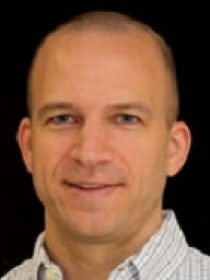Connect with William
About William
Franko’s research generally focuses on the causes and consequences of political, economic, and social inequality in the American context. In trying to better understand the relationship between inequality and politics, his work covers several areas of study, including public policy, political participation, public opinion, and representation. His policy work tends to emphasize taxation, redistribution, and technology use and access.
Contributions
How the U.S. States are Tackling Inequality – and What More Can be Done
Key Findings Brief,
How Roadblocks to Voting Make Income Inequality Worse
Key Findings Brief,
In the News
Opinion: "Taxes? Start Making Rich Pay Their Fair Share," William W. Franko, The Register-Herald, April 18, 2022.
Research discussed by , in "For the Effects of Voting, Look to Policy, Not Elections," Demos, March 27, 2015.
Research discussed by , in "If Everyone Voted, Progressives Would Win," Al Jazeera America, March 17, 2015.
Research discussed by , in "The 1% are More Likely to Vote than the Poor or the Middle Class, and It Matters - a Lot," Vox, October 24, 2014.
Publications
"Class Bias in Voter Turnout and Income Inequality," (with ), Auburn University, University of Tennessee, and University of South Carolina, October 31, 2013.
Examines the relationship between electoral class bias and income inequality. An analysis of state-level data from 1976 to 2006 demonstrates that the class composition of the electorate has an important influence on income inequality.
"Political Inequality and State Policy Adoption: Predatory Lending, Children’s Health Care, and Minimum Wage" Poverty & Public Policy 5, no. 1 (2013): 88-114.
Analyzes whether state housing, health care, and wage equity policies are more beneficial to the disadvantaged when levels of income-based participation inequality are low. The results have important implications for how political participation can be used to influence the policy process.
"Inequality, Self-Interest and Public Support for 'Robin Hood' Tax Policies" (with ). Political Research Quarterly 66, no. 4 (2013): 923-937.
Uses Washington State’s Proposition 1098 to examine how economic self-interest, concerns about inequality, and partisanship influence support for redistributive taxation. The results suggest that when the distributional implications of policies are clear, citizens can translate their self-interest and broad attitudes into congruent redistributive preferences.
"Digital Cities: The Internet and the Geography of Opportunity" (with ) (Oxford University Press, 2012).
Examines disparities in Internet access and how these disparities create barriers to digital use in American cities. The findings show how digital inequalities in American cities are leaving many people behind, particularly those who are economically disadvantaged.
